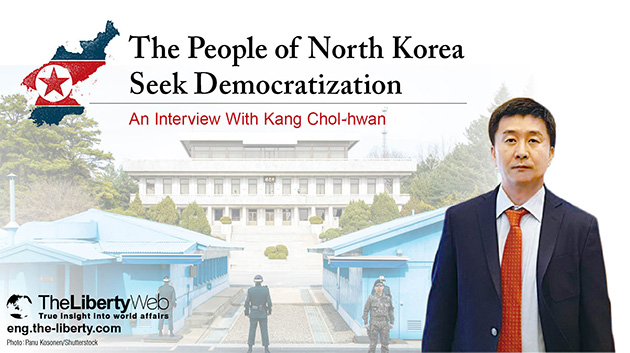The People of North Korea Seek Democratization
An Interview with Kang Chol-hwan
Interview
We asked North Korean defector-activists about their concentration camp experiences and the purpose of their activism.
Kang Chol-hwan
Born in Japan, 1968, his family returned to North Korea in the 1960s. He was detained in a concentration camp for 10 years, along with his family, as political criminals due to their having lived in Japan. Upon his release, he founded the North Korea Strategy Centre, an NGO group that aims to raise awareness of human rights conditions in North Korea. His book “The Aquariums of Pyonyang” has been translated into English. His family is still detained in North Korea.
(Interviewer: Hanako Cho)
—-What was it like inside the concentration camps?
Kang: Children, women and even elderly people were imprisoned in concentration camps as political criminals, and are made to do inhumane hard labor on minimal food supplies. It is very similar to the Soviet and Nazi camps made by Stalin and Hitler in the way they systematically kill the people.
But North Korea also has unique systems: a transfer system where the children inherit their parents’ “crimes”, and a three-generation wipeout system where they kill the parents, children and their children altogether.
Is Denuclearizing Enough?
—-The U.S. has led the international community in trying to denuclearize North Korea instead of trying to change the system of government. What are your thoughts on this?
Kang: North Korea already possesses chemical and biological weapons, so simply confiscating nuclear weapons will not solve the problem. Trying to just solve the nuclear problem will mean abandoning all the people now suffering under North Korea’s oppression of human rights.
—-How do you think the U.S. will deal with North Korea in view of South Korea’s new president?
Kang: If Moon Jae-in decides not to hide his anti-Japan sentiments, there is a high chance the U.S. will attack North Korea without South Korea’s cooperation. The inauguration of a leftist administration in South Korea will lead to a further degeneration in North Korea.
What We Need for Democratization
—-What do you think we need for the democratization of North Korea?
Kang: First, we need to ask China to stop the forced deportation of North Korean defectors. If they stop doing this, more people in North Korea will begin to openly seek democracy, and join in activism.
Secondly, we need to expand operations to send information to the west side of North Korea. There was a case in Romania where a citizen who got hold of outside information was able to bring down the dictator Nicolae Ceausescu.
—-Wouldn’t the North Korean system of surveillance and betrayal make it difficult for the people to rise against authority en masse?
Kang: That is true. But lately, the marketplaces have quite developed, and people have begun to resist the guards who monitor the marketplace for information circulation.
For example, when the Tumen river flood killed many people last year, the people were furious that Kim Jong-un didn’t come to see the devastation that took so many lives.
You see, people used to believe that state leaders don’t visit places, but after seeing on world news that leaders do visit disaster sites, the people changed their views. The government then had no choice but to contribute energy in the restoration of the flood. This was unprecedented.
This is why we continue to smuggle USBs that carry world news into North Korea. The awakening of the people is a weapon stronger than any other.
—-We have heard that there are underground churches in North Korea.
Kang: Pyongyang used to have so many Christians it used to be called the Jerusalem of the East. There are still many people who bring in copies of the Holy Bible via China. But the North Korean secrets agents of the State Security Department are brutally oppressing them.
The organization of the North Korean state system is actually based on the Christian Church organization, so if the ‘Christianity proper’ spreads and the people find something else to believe in, it puts the state system in danger of collapse. If Liberty leads her people, and they attain the freedom of belief, it would become a great catalyst for democratization.
Who Will Create the Future of North Korea?
—-If the Kim Jong-un regime collapses, what sort of people do you think will create the future of North Korea?
Kang: I think that North Korean defectors in South Korea will return to their home country to cooperate with the people in North Korea to create a new nation.
I think the Japan-South Korea relations are essential, especially after the regime dissolution, when North Korea will look to its neighboring countries as potential supporters. That’s why I want the Japan-South Korea relations to become one that looks forward to a bright future together.
(The end of interview)



















